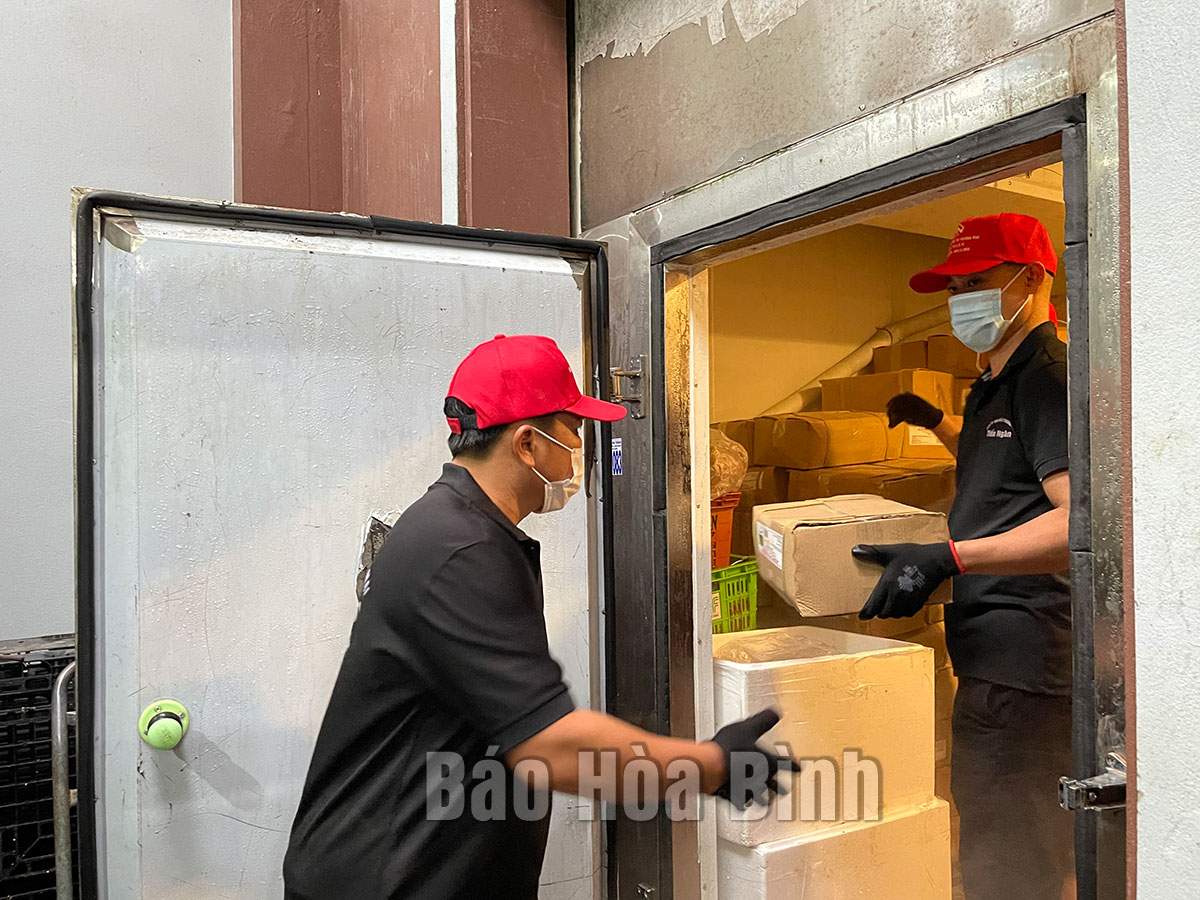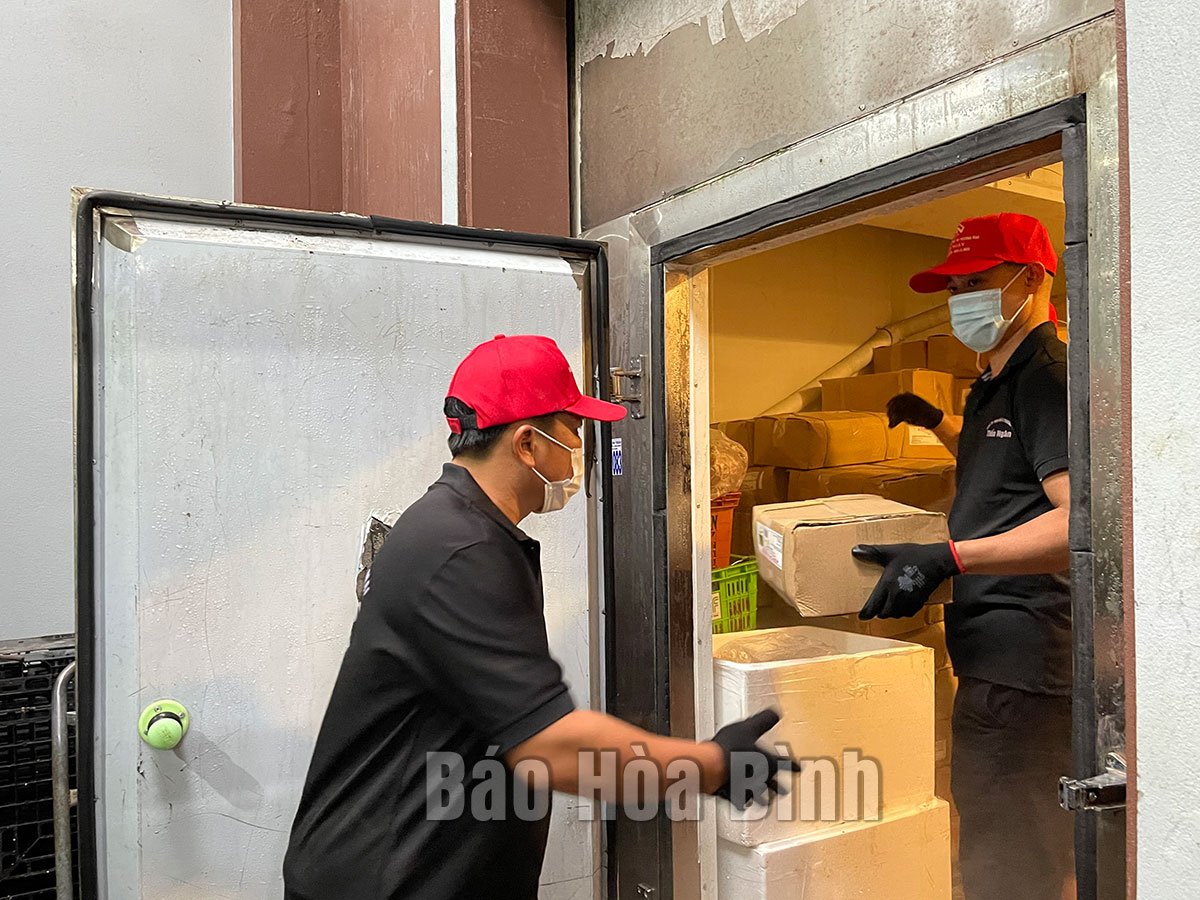
(HBO) – Following the successful exportation of fresh sugar cane to Japan in 2019, Hoa Binh province shipped 10 tonnes of the produce to Germany in early November despite the complex COVID-19 situation. This is viewed as an encouraging sign opening up a new development direction for local sugar cane in the time ahead.

The fresh sugar cane exported to Germany was purchased, processed, and packaged
by the Tien Ngan Investment and Trade Co. Ltd, based in Hoa Binh city.
The exported sugar cane, supplied by the Tung
Duong agro-forestry services cooperative in My Hoa commune (Tan Lac district),
has satisfied strict plant quarantine requirements. The successful shipment is
a considerable driving force for this cooperative, as well as many sugar cane
farmers in My Hoa commune as their produce has met high export standards.
Dinh Long Duong, Director of the Tung Duong cooperative,
said the commune has about 300 hectares of sugar cane, and that the export of
fresh sugar cane to foreign markets brings about great hope for the cooperative
and farmers.
The shipment to Japan, the US, and Germany
proved that the local sugar cane production process has been increasingly
improved to meet strict requirements of foreign markets. To better product
quality and promote exportation, Hoa Binh province has expanded the area of
sugar cane farmed using tissue culture, which has resulted in higher
productivity and quality.
The province is currently home to about 6,800
hectares of sugar cane, mostly in the districts of Cao Phong, Tan Lac, Lac Son,
Kim Boi, Yen Thuy, and Da Bac. The cultivation generated an average of 200
million - 250 million VND (8,700 - 10,900 USD) per hectare in income and 100
million - 140 million VND per hectare in profit, according to the provincial
Department of Agriculture and Rural Development.
Hoa Binh is set to export 44 tonnes of sugar
cane to the UK and Germany in the time ahead.
Nguyen Hong Yen, head of the department’s
division for crop production and plant protection, said the exportation of
fresh sugar cane to some major markets will give a boost to other potential
agricultural products of Hoa Binh. It will also help attract domestic and
foreign investment to the production and processing of sugar cane and other
farm produce, thereby enhancing investors and consumers’ trust in the sugar
cane of Hoa Binh./.
According to data from the Hoa Binh Provincial Party Committee, the industrial production index for the first six months of 2025 is estimated to have increased by 20% compared to the same period last year. This marks the highest year-on-year growth rate for this period since 2020.
In the first six months of 2025, Hoa Binh province’s export turnover was estimated at 1.145 billion USD, marking an 18.11% increase compared to the same period in 2024. Import turnover was estimated at $ 804 million, a 17.15% increase, which helped the province maintain a positive trade balance.
The lives of the ethnic minority farmers in Tan Lac district have gradually improved thanks to the new directions in agricultural production. This is a testament to the collective strength fostered through the professional associations and groups implemented by various levels of the district’s Farmers’ Union.
With the motto the "product quality comes first,” after nearly one year of establishment and operation, Muong village’s Clean Food Agricultural and Commercial Cooperative, located in Cau Hamlet, Hung Son Commune (Kim Boi district), has launched reputable, high-quality agricultural products to the market that are well-received by consumers. The products such as Muong village’s pork sausage, salt-cured chicken, and salt-cured pork hocks have gradually carved out a place in the market and they are on the path to obtaining the OCOP certification.
In the past, the phrase "bumper harvest, rock-bottom prices" was a familiar refrain for Vietnamese farmers engaged in fragmented, small-scale agriculture. But today, a new spirit is emerging across rural areas of Hoa Binh province - one of collaboration, organisation, and collective economic models that provide a stable foundation for production.
Maintaining growing area codes and packing facility codes in accordance with regulations is a mandatory requirement for agricultural products to be eligible for export. Recently, the Department of Agriculture and Environment of Hoa Binh province has intensified technical supervision of designated farming areas and packing facilities to safeguard the "green passport" that enables its products to access international markets.



